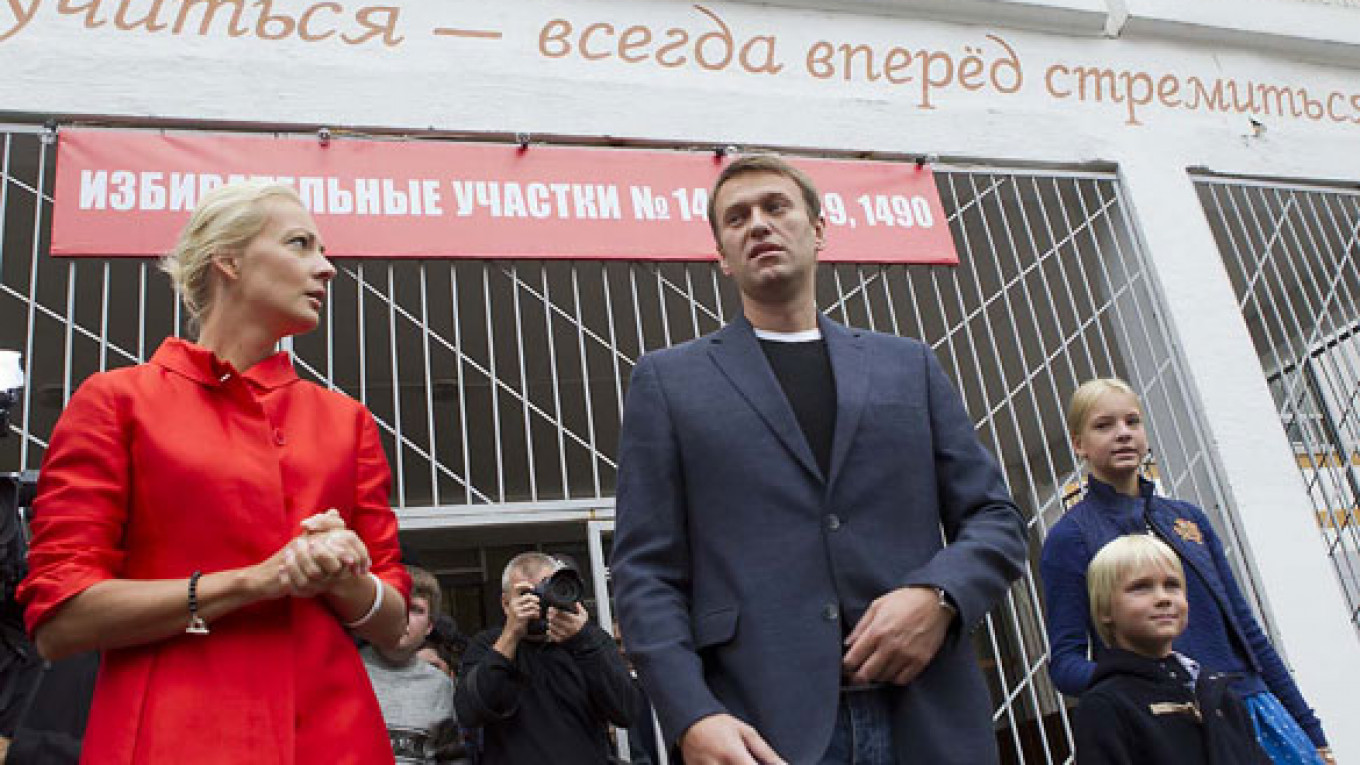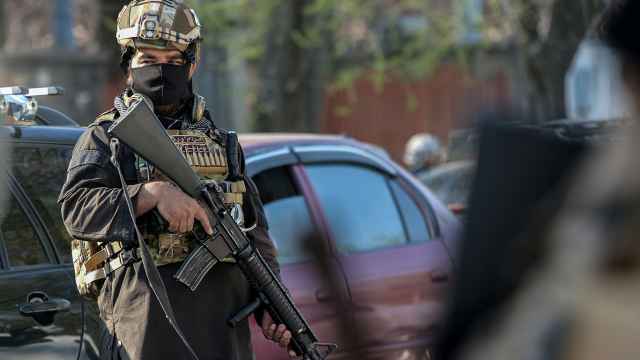Several Moscow courts Monday threw out lawsuits filed by opposition leader Alexei Navalny to contest the results of the Sept. 8 mayoral vote, while his supporters speculated about a possible early election of the Moscow City Duma that could give the upper hand in the campaign to ruling party candidates.
A number of courts refused to consider lawsuits filed by Navalny, one of the politician's lawyers, Dmitry Krainev, said on Twitter. He added that most of the hearings of Navalny's complaints against the election, in which the opposition leader received just over 27 percent of the vote, would take place Monday, but no information was available on the ultimate rulings as of Monday evening.
Last week, Moscow courts threw out about a hundred lawsuits initiated by Navalny.
The complaints of irregularities are part of Navalny's 951 lawsuits seeking to overturn election results at various polling stations. Earlier this month, the politician's suit seeking to cancel the election results citywide was rejected by Moscow City Court, which Navalny said had refused to hear his team's witnesses and turned down all their motions.
Courts said Monday that, under the Civil Procedure Code, they had the right not to hear a lawsuit if an analogous one was being considered by another court, Krainev said, adding that they were referring to Navalny's bid to cancel the election results citywide.
He said the decisions were illegitimate because the citywide lawsuit was not analogous to the ones related to specific polling stations and because the citywide suit had already been rejected and was not being heard anywhere at the moment.
"Following the Moscow City Court, district courts totally ignored the law, nobody cared even about pretending to comply with it," Krainev wrote. "The courts' decisions to ignore the law in such a way have something to do not only with Navalny's personality but also with the scandalous character of the situation. It seems like the lists for voting at home are fake."
Navalny has accused Mayor Sergei Sobyanin of buying votes by sending bags of groceries to pensioners in the run-up to the election and distributing illegal campaign materials before and on election day. The Navalny campaign has also argued that social workers had included some people in lists for voting at home without their consent and said the principle of candidates' equal access to the media had been violated.
Meanwhile on Monday, Navalny supporters discussed a possible early election of the Moscow City Duma. The opposition leader and his allies have announced plans to run in Moscow's next legislative election, which is currently slated for September 2014. They vow that, if successful in their run, they will drastically change the composition and role of the assembly, in which United Russia has 91 percent of the seats.
Krainev tweeted Saturday that an election committee head told him that authorities were preparing for early Moscow City Duma elections. A change in the date could be announced in December, and the elections could take place in March 2014, he said.
The Moscow mayoral election took place just a few months after being announced, when then-acting Mayor Sobyanin said he would step down, triggering a snap vote. Most observers said the limited time for campaigning gave Sobyanin an advantage because of his greater visibility among voters.
Contact the author at o.sukhov@imedia.ru
A Message from The Moscow Times:
Dear readers,
We are facing unprecedented challenges. Russia's Prosecutor General's Office has designated The Moscow Times as an "undesirable" organization, criminalizing our work and putting our staff at risk of prosecution. This follows our earlier unjust labeling as a "foreign agent."
These actions are direct attempts to silence independent journalism in Russia. The authorities claim our work "discredits the decisions of the Russian leadership." We see things differently: we strive to provide accurate, unbiased reporting on Russia.
We, the journalists of The Moscow Times, refuse to be silenced. But to continue our work, we need your help.
Your support, no matter how small, makes a world of difference. If you can, please support us monthly starting from just $2. It's quick to set up, and every contribution makes a significant impact.
By supporting The Moscow Times, you're defending open, independent journalism in the face of repression. Thank you for standing with us.
Remind me later.






